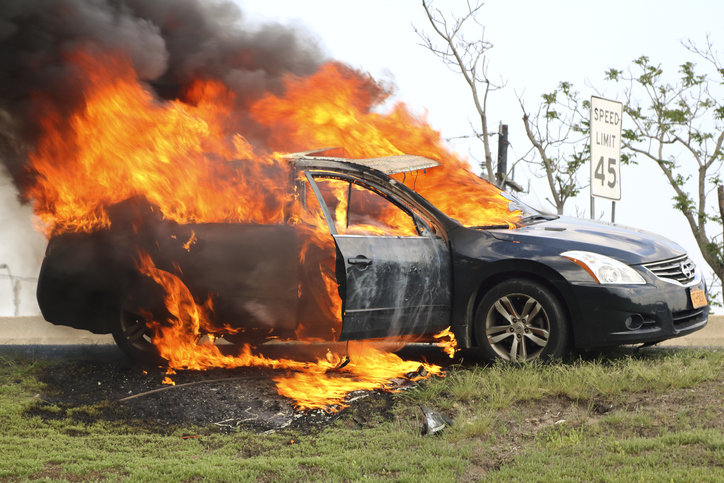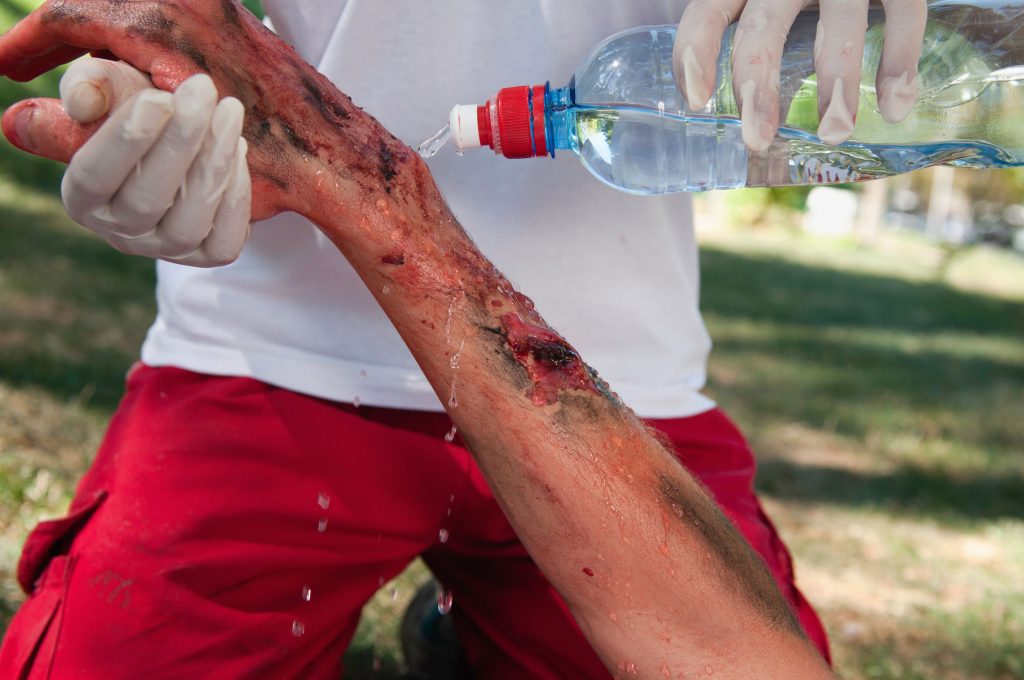
When any type of truck crashes, the consequences can be devastating, and trucks carrying hazardous materials pose even greater dangers. Hazardous materials truck accidents can turn into far reaching events harming hundreds of people, causing fires and explosions and even evacuations. Among the many types of injuries which can occur in hazardous materials accident are burns from fires and explosions and chemical burns. Hazardous materials truck accident cases are complex and you need the help of an experienced truck accident attorney to win.
The Wide-Ranging Consequences of Hazardous Materials Accidents
Hazardous materials accidents can result in all of the injuries and damage that other types of trucking accidents cause and more including:
- Chemical spills
- Fires
- Explosions
- Bridge and overpass collapse
- Damage to nearby buildings and homes
- Release of toxic gases
- Water contamination
- Soil contamination
- Evacuations
In addition to the injuries commonly sustained in truck accidents, hazardous materials truck accidents can cause:
- Severe thermal burns
- Chemical burns
- Respiratory injury due to inhaling toxic gases
- Neurotoxicity due to inhaling toxic gases
- Injuries to pedestrians and people in nearby buildings
Victims of Hazardous Materials Truck Accidents
Victims of hazardous materials accidents can be numerous, sometimes in the hundreds, and can include:
- Truck driver and their passengers
- Occupants of other vehicles directly involved in the crash
- Drivers on overpasses, bridges, underpasses, in tunnels, on other roads and in parking lots and parking structures near the accident
- Pedestrians
- People in nearby buildings damaged or otherwise affected by fire or explosion
- People within miles of the accident who are exposed to toxic gases
- Property owners
Hazardous Materials Transport Has Special Regulations
Examples of some of the regulations applying to hazardous materials (hazmat) transport include:
- Hazmat truck drivers are required to have special licensing and extensive training above and beyond what is required for a basic commercial driver’s license (CDL).
- Hazmat drivers are never to leave their trucks unattended.
- There are very strict rules for how hazardous materials are to be secured to prevent spills and accidents as well as theft by terrorists.
- Hazmat trucks are not allowed to travel near open fires, park near fires, or carry flares.
- Trucks carrying explosive materials may not park within 300 feet of houses, tunnels, bridges, or places where people congregate.
- Hazmat drivers must be given documentation of what they are carrying and what actions to take if something goes wrong.
- There are additional regulations specific to the various types of hazardous material.
If you have been injured in a hazardous materials truck accident please search our directory for an experienced burn injury attorney in your state.


